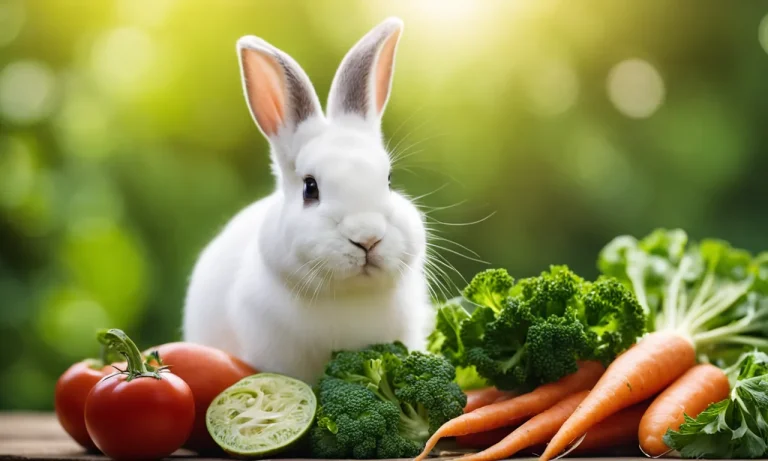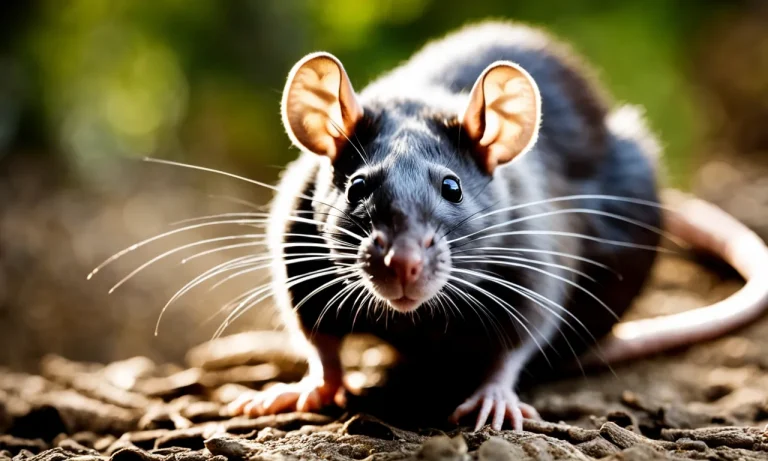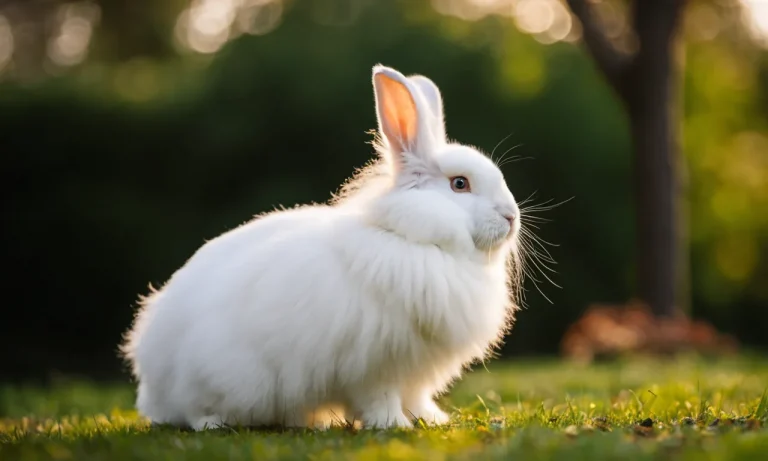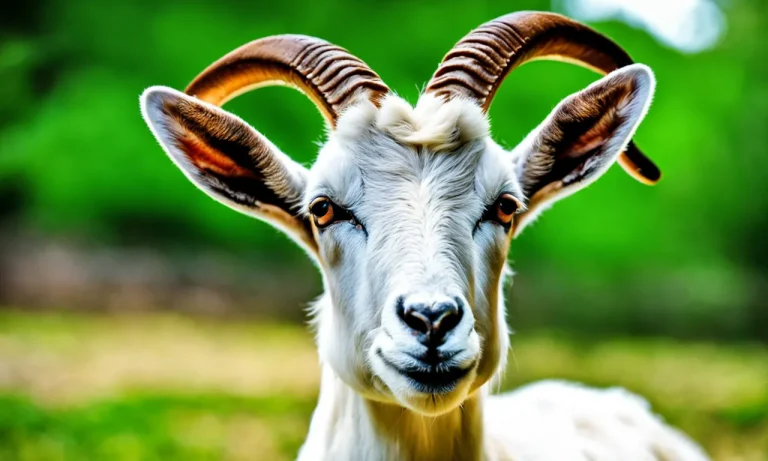Rabbits chewing on their cages is a common issue that many owners struggle with. If you’ve noticed your bunny gnawing away at their enclosure, you’re probably wondering why they’re doing it and how to get them to stop.
In this comprehensive guide, we’ll explore the reasons behind this destructive behavior and provide actionable solutions to curb it.
If you’re short on time, here’s a quick answer: Rabbits chew on cages due to boredom, stress, or instinct. You can stop this by providing more enrichment, addressing causes of stress, and using bitter sprays on cage bars.
Common Reasons Why Rabbits Chew Their Cages
Boredom and Lack of Stimulation
One of the most common reasons why rabbits chew on their cages is boredom and a lack of stimulation. Rabbits are naturally curious and active animals, and without proper mental and physical stimulation, they can become bored and frustrated.
When rabbits are kept in small, confined spaces with little to do, they may resort to chewing on their cages as a way to alleviate their boredom. It’s important for rabbit owners to provide their pets with plenty of toys, tunnels, and safe chewing options to keep them entertained and engaged.
Stress and Anxiety
Stress and anxiety can also cause rabbits to chew on their cages. Rabbits are sensitive creatures and can easily become stressed by changes in their environment or routine. This can include anything from moving to a new home, the introduction of a new pet, or loud noises and disturbances.
Chewing on their cages can be a way for rabbits to cope with their anxiety and feel safe. It’s important to create a calm and secure environment for your rabbit and minimize any potential stressors.
Natural Chewing Instinct
Rabbits have a natural chewing instinct, and chewing on their cages can be a way for them to keep their teeth in good condition. Rabbit teeth continuously grow throughout their lives, and chewing helps to wear down their teeth and prevent them from becoming overgrown.
Providing your rabbit with appropriate chew toys and safe materials to gnaw on can help satisfy their natural chewing instinct and prevent them from resorting to chewing on their cages.
Did you know? Rabbits’ teeth grow at a rate of about 2-3mm per week! That’s why it’s important for them to have plenty of chewing options to maintain dental health.
Tips to Prevent Your Rabbit from Chewing Its Cage
Rabbits have a natural instinct to chew, and if they are confined to a cage for long periods of time, they may resort to chewing on the bars. This behavior can be harmful to your rabbit’s teeth and overall well-being. Here are some tips to help prevent your rabbit from chewing its cage:
Give Your Rabbit Plenty of Exercise Time
One of the main reasons rabbits chew on their cages is because they are bored and need more stimulation. Make sure your rabbit has plenty of exercise time outside of its cage. Provide a safe, rabbit-proofed area where your rabbit can hop around and explore.
This will not only keep your rabbit physically active but also mentally stimulated.
Provide Chew Toys and Other Enrichment
Rabbits have a natural need to chew, so it’s important to provide them with appropriate chew toys. These toys should be made of safe, non-toxic materials such as untreated wood or woven grass. You can also provide other forms of enrichment, such as tunnels, cardboard boxes, and puzzle toys, to keep your rabbit entertained and prevent it from resorting to chewing on its cage.
Address Sources of Stress for Your Bunny
Stress can be a major factor contributing to cage chewing behavior in rabbits. Take the time to identify and address any sources of stress in your rabbit’s environment. This could include loud noises, excessive handling, or the presence of other animals.
Creating a calm and quiet environment for your rabbit can help reduce its need to chew on its cage.
Use Bitter Sprays on Cage Bars
If your rabbit is particularly stubborn and continues to chew on its cage despite other efforts, you can try using a bitter spray on the cage bars. These sprays have a bitter taste that rabbits find unpleasant, which can deter them from chewing.
Be sure to choose a spray that is safe for rabbits and follow the instructions carefully.
Provide Healthy Alternatives to Chew On
In addition to chew toys, it’s important to provide your rabbit with other healthy alternatives to chew on. This can include fresh vegetables, hay, and safe branches from fruit trees. These items not only provide a satisfying chewing experience for your rabbit but also offer important nutrients for its overall health.
Get Your Rabbit Spayed or Neutered
One of the most effective ways to reduce chewing behavior in rabbits is to have them spayed or neutered. This can help reduce hormonal-driven behaviors, including cage chewing. Consult with a veterinarian experienced in rabbit care to determine the best time to have your rabbit spayed or neutered.
By implementing these tips, you can help prevent your rabbit from chewing its cage and promote a happy and healthy environment for your furry friend.
What to Do If Your Rabbit Won’t Stop Chewing Its Cage
If you have a rabbit that won’t stop chewing its cage, it can be both frustrating and concerning. Rabbits have a natural instinct to chew, as it helps keep their teeth healthy and prevents them from overgrowing.
However, excessive chewing on the cage can indicate boredom, stress, or a lack of appropriate chewing alternatives. Here are some steps you can take to address this behavior and keep your bunny happy and healthy.
Take Your Rabbit to the Vet
If your rabbit suddenly starts chewing on its cage, it’s essential to rule out any potential health issues. Dental problems, such as malocclusion or tooth spurs, can cause discomfort and lead to excessive chewing.
Take your rabbit to a veterinarian who specializes in small animals to assess its oral health. The vet can determine if there are any dental issues that may be causing the chewing behavior and recommend appropriate treatment.
Try Changing Cage Setups
One possible reason for your rabbit’s cage chewing could be boredom. Make sure your rabbit has plenty of toys, tunnels, and other enrichment items to keep it mentally stimulated. Rotate these items regularly to keep things interesting for your furry friend.
Consider adding a digging box filled with safe materials like hay or shredded paper, as rabbits enjoy burrowing and digging. Additionally, provide ample space for your rabbit to exercise and explore outside of its cage, as this can help alleviate boredom and reduce the desire to chew.
Consider Getting a Different Cage Material
If your rabbit’s chewing behavior persists despite providing plenty of mental stimulation, you may need to consider changing the cage material. Some rabbits are more prone to chewing on certain types of cages.
For example, wire cages with bars may be more enticing for rabbits to chew on than solid-sided cages. Consider switching to a different type of cage material, such as plastic or wood, that your rabbit is less likely to chew on.
However, make sure the new material is safe and provides adequate ventilation for your rabbit.
Remember, each rabbit is unique, and it may take some trial and error to find the solution that works best for your furry companion. If the chewing behavior persists or worsens, don’t hesitate to consult with a rabbit-savvy veterinarian or seek advice from a rabbit behavior specialist.
With patience and persistence, you can help your rabbit break the habit of chewing on its cage and provide a more enriching and enjoyable environment for them.
When to Be Concerned About Excessive Cage Chewing
Rule Out Medical Issues
If you notice that your rabbit is constantly chewing on its cage, it is important to rule out any underlying medical issues. Chewing can be a sign of dental problems, such as overgrown teeth or tooth spurs, which can cause discomfort and lead to excessive chewing behavior.
It is recommended to take your rabbit to a veterinarian who specializes in exotic animals to have its teeth examined and ensure there are no health issues contributing to the behavior.
Watch for Signs of Distress
Excessive cage chewing can also be a sign of distress or boredom in rabbits. These animals are highly intelligent and require mental and physical stimulation to thrive. If your rabbit is confined to a small cage without any form of enrichment, it may resort to chewing on its surroundings out of frustration.
It is important to provide your rabbit with plenty of toys, tunnels, and opportunities for exercise to keep it mentally and physically stimulated. This can help prevent excessive chewing and promote a happy and healthy rabbit.
Monitor for Broken Teeth and Mouth Injuries
Continual chewing on the cage bars can also lead to dental injuries and broken teeth in rabbits. The constant pressure and force exerted on the teeth can cause them to weaken or break, leading to further discomfort for your furry friend.
If you notice any changes in your rabbit’s eating habits, such as difficulty chewing or a decrease in appetite, it is important to have its teeth checked by a veterinarian. They can assess the extent of the damage and provide appropriate treatment to alleviate any pain or discomfort.
Frequently Asked Questions About Rabbit Cage Chewing
Why does my rabbit chew on their cage suddenly?
There can be several reasons why your rabbit suddenly starts chewing on their cage. One possible reason is boredom. Rabbits are intelligent animals that require mental stimulation and physical activity.
If they are not provided with enough toys, hiding spots, or opportunities to explore, they may resort to chewing on their cage as a way to alleviate their boredom. Another reason could be dental issues.
Rabbits’ teeth continue to grow throughout their lives, and chewing on hard surfaces helps to wear them down. If your rabbit’s teeth are not properly aligned or if they have dental problems, they may chew on their cage to try to alleviate discomfort.
Are some rabbit breeds more prone to chewing?
While all rabbits have a natural instinct to chew, some breeds may be more prone to excessive chewing than others. For example, breeds such as Dutch, Mini Rex, and Lionhead rabbits are known to be more active and curious, which can lead to increased chewing behavior.
However, it’s important to note that individual personality and environmental factors also play a significant role in a rabbit’s chewing habits. Providing appropriate chew toys and ensuring they have enough mental and physical stimulation can help redirect their chewing behavior.
Should I cover my rabbit’s cage in cardboard?
Covering your rabbit’s cage in cardboard may seem like a quick fix to prevent them from chewing on their cage bars. However, it is not recommended. Rabbits have a natural urge to chew, and covering the cage with cardboard may only temporarily deter them from chewing on the bars.
Additionally, ingesting cardboard can be harmful to rabbits, as it can cause digestive issues or blockages. Instead, focus on providing plenty of appropriate chew toys, such as untreated wooden blocks or safe vegetable-based chew toys, to satisfy their chewing needs.
Is it normal for baby rabbits to chew a lot?
Yes, it is normal for baby rabbits to chew a lot. Chewing is a natural behavior for rabbits, and it begins at a young age. Baby rabbits, also known as kits, explore the world around them through their mouths. Chewing helps them develop their teeth and jaw muscles.
However, it’s essential to provide appropriate chew toys and supervise their chewing behavior to ensure they are not chewing on anything harmful or dangerous. As they grow older, their chewing behavior should decrease, especially if they have access to enough mental and physical stimulation.
Conclusion
In conclusion, rabbits chewing their cages is often due to boredom, stress, or natural instincts. Providing enrichment, managing anxiety triggers, using deterrents, and giving appropriate outlets for chewing are effective ways to curb this behavior.
If chewing persists, have your rabbit examined by a vet and make cage modifications. With patience and effort, you can reach a happy solution for both you and your bunny.






